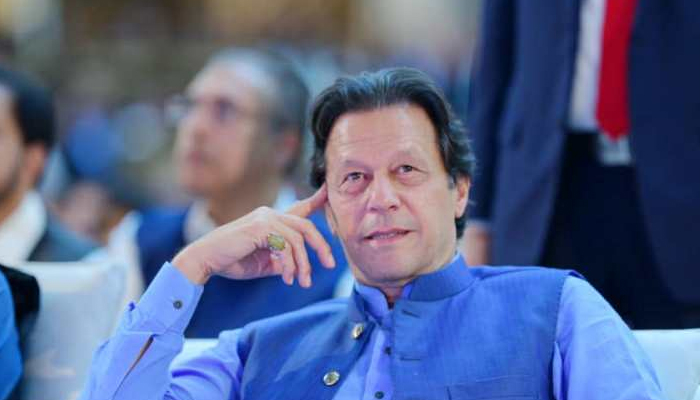Elite class bears fruits of top-quality education, leaving poor behind: PM Imran
The premier made these comments while addressing an event on Ehsaas scholarship programme
ISLAMABAD: Prime Minister Imran Khan said Monday Pakistan's elite class retained a strong grip on the country's top-quality education and were benefiting from it across the country.
While addressing an event of Ehsaas Programme, PM Imran said: "A small class of elite people controls the good quality of education in our country and they are its beneficiaries as well," adding that "the poor people have the sort of education that does not allow them to move forward in life".
"I am happy for this programme as it is in accordance to the model of [the state of] Madina, which was the most successful model," he said, referring to a concept he has reiterated time and again as the goal of his PTI-led government.
"Even though they lacked resources, they were determined to raise and support the poor segment of the society. After the first battle of Badr, the Prophet (PBUH) let go of prisoners who taught 10 Muslims."
The PM noted that such a far-sighted vision helped Muslims emerge as emerging scientists over the next seven to eight centuries. "We will increase the amount of scholarships when the resources of the state increase."
PM Imran awarded need-based Ehsaas undergraduate scholarships to the first batch of deserving students. A sum worth Rs24 billion would be spent on the four-year programme meant to support 200,000 low-income but deserving students, of whom half were young women.
Overall, 50,000 scholarships would be handed out every year to financially help deserving students access higher education.
SAPM Dr Sania Nishtar had earlier said the programme would help impart higher education to a total of 200,000 students, of which 50% would be girls from less-developed areas. A 2% quota, on the other hand, was allocated for special persons.
Recipients of the scholarships would be assessed continuously on their academic performance during the grant period as a method to determine whether to continue providing financial assistance.
The scholarship entails complete tuition fee and a monthly stipend worth Rs4,000.
-
Security forces gun down 30 terrorists in multiple IBOs in KP: ISPR
-
MQM-P calls for new province in Sindh
-
US report validates Pakistan military edge over India: PM
-
Banned TTP poses serious threat to Pakistan security: UNSC panel
-
CM Afridi clarifies remarks on by-poll after ECP requests army deployment
-
Dubai sees 3.2m Pakistani passengers in 2025 as airport sets new milestone
-
Security forces kill 23 Indian proxy terrorists in KP's Kurram
-
Pakistan to construct island to boost oil exploration: report












